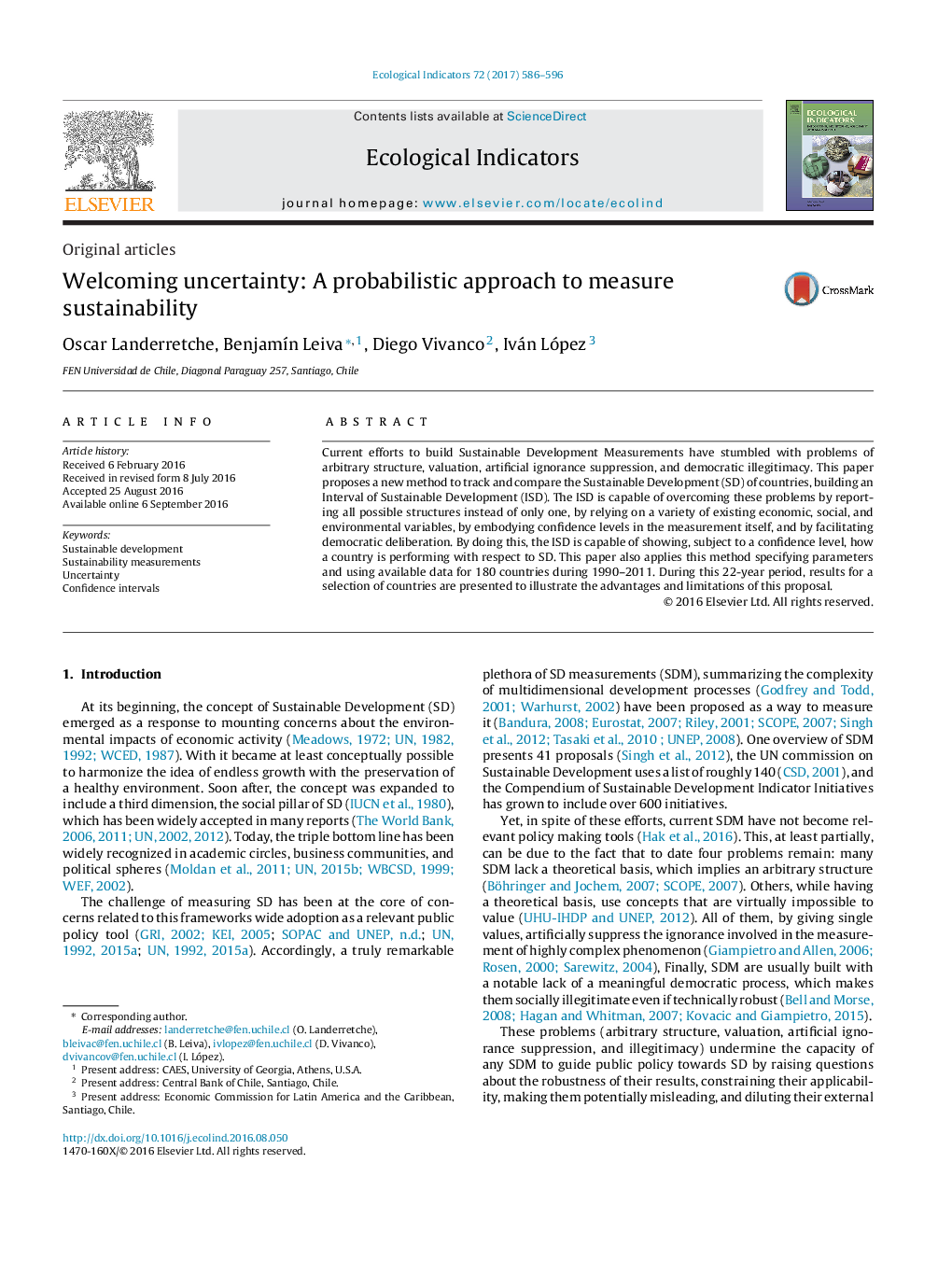| Article ID | Journal | Published Year | Pages | File Type |
|---|---|---|---|---|
| 6292832 | Ecological Indicators | 2017 | 11 Pages |
â¢A method to measure sustainability is developed, shifting its conceptualization from deterministic to probabilistic.â¢The proposal deals with four key issues: arbitrary structure, valuation, artificial ignorance suppression, and democratic illegitimacy.â¢The method is applied, results are showed, and its weaknesses and strengths are identified.â¢The proposal enables evaluating the sustainability trajectory of countries, subject to defined confidence levels.
Current efforts to build Sustainable Development Measurements have stumbled with problems of arbitrary structure, valuation,artificial ignorance suppression, and democratic illegitimacy. This paper proposes a new method to track and compare the Sustainable Development (SD) of countries, building an Interval of Sustainable Development (ISD). The ISD is capable of overcoming these problems by reporting all possible structures instead of only one, by relying on a variety of existing economic, social, and environmental variables, by embodying confidence levels in the measurement itself, and by facilitating democratic deliberation. By doing this, the ISD is capable of showing, subject to a confidence level, how a country is performing with respect to SD. This paper also applies this method specifying parameters and using available data for 180 countries during 1990-2011. During this 22-year period, results for a selection of countries are presented to illustrate the advantages and limitations of this proposal.
